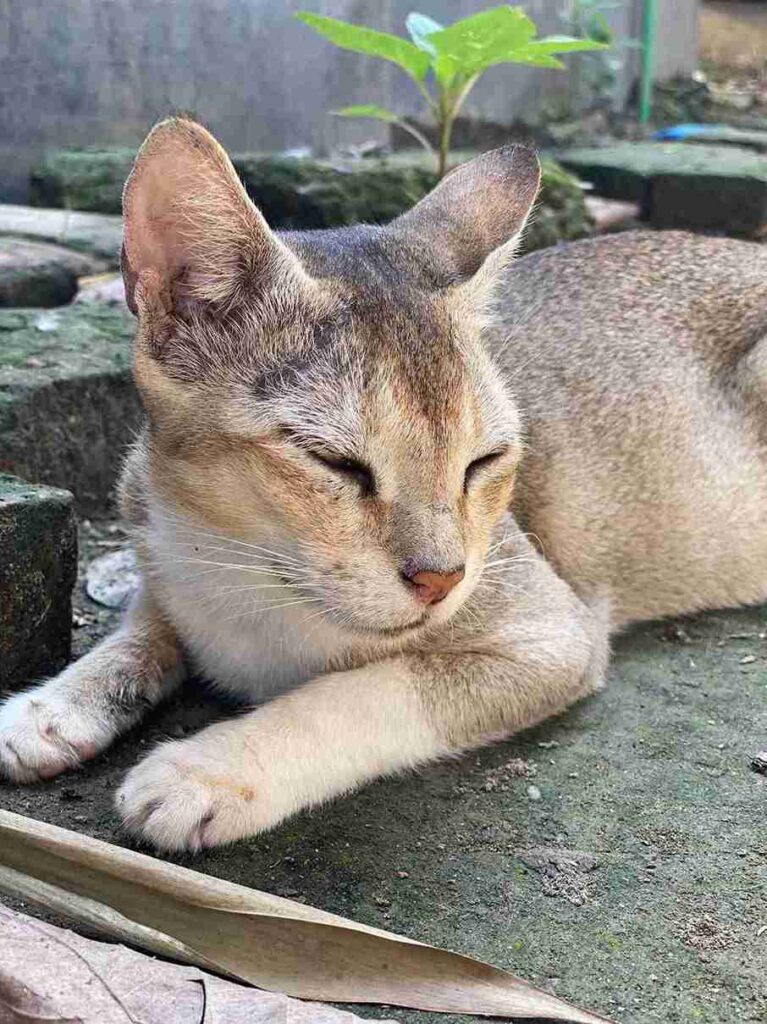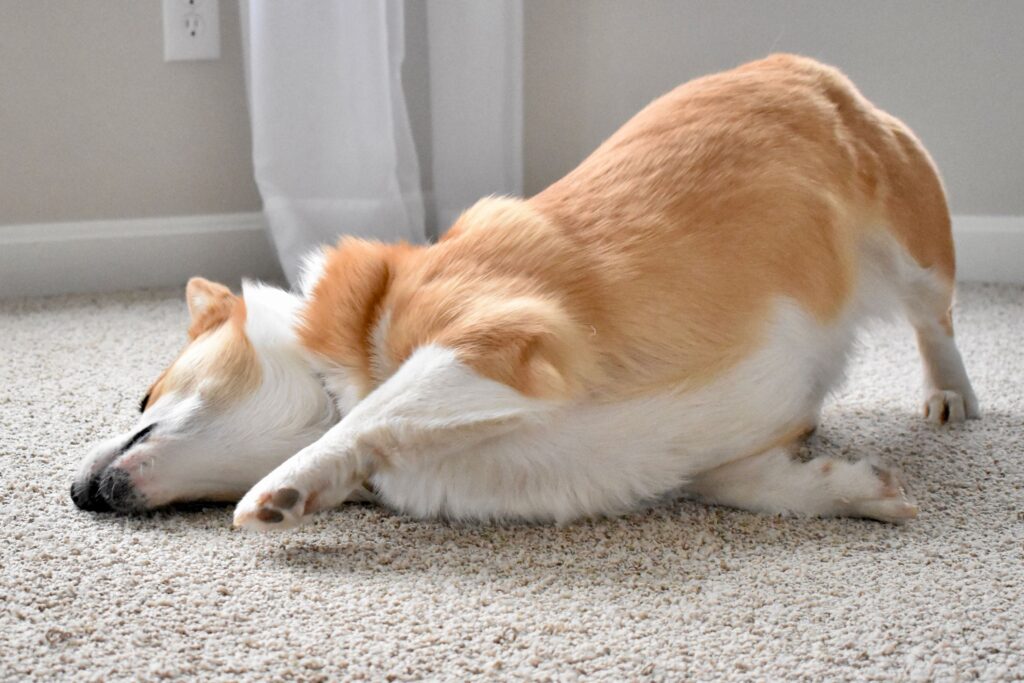Cats knead and bite blankets for various reasons, including marking territory, showing affection, seeking comfort, or relieving stress. Curled up on a cozy blanket, your feline friend starts kneading and biting it, leaving you puzzled.
While it may seem strange, this behavior is actually quite common among cats. Cats have their own unique ways of communicating and interacting with their environment, and kneading and biting blankets is just one of them. Understanding why cats exhibit this behavior can give us insight into their needs and emotions.
We will explore the seven most common reasons why cats knead and bite blankets, shedding light on this quirky feline behavior. Whether you’re a cat owner or simply curious about feline behavior, this article will provide you with valuable insights into the world of cat kneading and biting blankets.
Contents
1. Instinctual Behavior
Cats are instinctively driven to knead and bite blankets. It is an innate behavior that kittens learn from their mothers. This behavior can be traced back to the days when cats needed to create a comfortable spot to sleep. They would knead on their mother’s belly to stimulate milk flow. As they grow older, this behavior is often associated with comfort and contentment. Cats may knead and bite blankets as a way to mark their territory by releasing scent from the glands in their paw pads. It can also be a sign of affection and a way for cats to show their trust in their environment and their human companions. Some cats may knead and bite blankets as a way to relieve stress or anxiety. It is important to provide cats with proper enrichment and outlets for their natural behaviors to keep them happy and healthy.
2. Marking Territory
2. Marking Territory
Cats have scent glands in their paws that release their unique scent. When cats knead and bite blankets, they are effectively marking their territory. The pressure applied while kneading helps release the scent from their paws onto the blanket, leaving behind their signature smell. This behavior is especially common in unneutered male cats, as they have higher levels of hormones that drive them to mark their territory. By kneading and biting blankets, cats are not only leaving their scent but also making the territory their own.
3. Seeking Comfort
In seeking comfort, cats often knead and bite blankets to recreate the warm and secure sensation they experienced when they were with their mother. This behavior is reminiscent of the way kittens knead their mother’s teats to stimulate milk flow. The action of kneading helps cats release tension and provides a sense of reassurance. It is believed that the rhythmic motion and pressure of their paws against the blanket triggers the release of endorphins, which in turn promotes relaxation and comfort. By biting the blanket, cats may also be trying to mark their territory with their scent, as their saliva contains pheromones that serve as a familiar and calming scent to them. The act of kneading and biting blankets is therefore an instinctual behavior that brings a sense of safety and well-being to our feline companions.
4. Relaxation And Stress Relief
Kneading and biting blankets can be a source of relaxation and stress relief for cats. When cats engage in these behaviors, it triggers the release of endorphins, which are the body’s natural feel-good hormones. This can provide a sense of comfort and help cats alleviate stress or anxiety.
5. Playfulness And Stimulation
Cats may knead and bite blankets as a form of play and stimulation. It allows them to engage their muscles and interact with their environment. Play behavior is an essential part of a cat’s life, and by kneading and biting blankets, they can mimic hunting and pouncing movements. This interactive play helps them burn off excess energy and keeps them mentally stimulated.
6. Showing Affection
Showing Affection: Cats may knead and bite blankets to show affection towards their owners. It is a way for them to bond and communicate their love. Kneading is a behavior that they learn as kittens when they nurse, and they continue to associate it with comfort and security throughout their lives. By kneading on blankets, they are mimicking the actions they would take when nursing from their mother. This action brings them a sense of contentment and relaxation.
Communication: Another reason why cats knead and bite blankets is to communicate with their owners. When they engage in this behavior, they are sending a message that they are content and happy. They may also do it to get attention or to invite their owners to play. Some cats may even nibble or bite gently on the blankets as a way to initiate playtime.
Bonding: Cats use kneading and biting blankets as a way to strengthen their bond with their owners. When they knead, they release pheromones from the glands on their paw pads, which mark the blanket as their territory. This territorial marking behavior helps them feel more secure and reassured in their environment.
Comfort: Kneading and biting blankets can provide cats with a sense of comfort and relaxation. The repetitive motion of kneading and the texture of the blanket can have a soothing effect on them. It can help them relieve stress and anxiety, especially in unfamiliar or stressful situations.
Sensory Stimulation: Cats have sensitive paws, and kneading and biting blankets can provide them with sensory stimulation. The feeling of texture and pressure on their paws can be enjoyable for them. It can also help to keep their claws healthy and in good condition.
Instinctual Behavior: Lastly, kneading and biting blankets may also be an instinctual behavior for cats. In the wild, cats would knead the ground or soft surfaces to create a comfortable sleeping spot. This behavior may have been passed down through generations, even though domestic cats no longer need to make their own sleeping spots.
7. Dental Health
One of the reasons why cats knead and bite blankets is to maintain their dental health. Kneading and biting provide a mechanism for cats to clean their teeth naturally, effectively removing plaque and tartar buildup. This behavior helps keep their teeth clean and healthy, reducing the risk of dental issues such as gum disease and tooth decay. Cats have small, sharp teeth that can easily trap food particles and bacteria, so regularly engaging in activities like kneading and biting blankets helps to prevent these substances from accumulating on their teeth and causing oral health problems. Providing your cat with appropriate dental care, such as regular teeth cleanings and providing dental treats, can also complement their natural cleaning behaviors and ensure their dental hygiene is well-maintained.

Credit: www.amazon.com
Frequently Asked Questions For Why Do Cats Knead And Bite Blankets: 7 Most Common Reasons
Why Is My Cat Biting And Kneading My Blanket?
Your cat is biting and kneading your blanket due to natural instincts. Cats often engage in these behaviors to mark their territory, show affection, and provide comfort. It’s their way of displaying contentment and relaxation. Encourage appropriate scratching on designated posts and provide ample playtime to redirect their energy.
What Is Obsessive Kneading In Cats?
Obsessive kneading in cats is when cats repeatedly and excessively paw at a soft object, like a blanket or their owner. It is a common behavior that stems from instinctual behaviors, including kneading to mark territory or showing contentment.
Why Does My Cat Push And Bite My Blanket?
Cats push and bite blankets because they find them comforting and soothing. It’s a natural behavior that mimics their instinct to knead and mark territory. Some cats also do it for attention or to show affection.
Why Do Cats Knead And Nurse On Blankets?
Cats knead and nurse on blankets because it reminds them of their mother’s comforting presence from their infancy. It’s a natural behavior that brings them security and comfort.
Conclusion
To sum up, cats knead and bite blankets for various reasons, all rooted in their natural instincts and communication habits. Whether it’s a way to mark their territory, show affection, or simply indulge in comfort, this behavior is often harmless and even endearing.
However, it’s important to pay attention to any persistent biting or kneading that might indicate underlying issues such as anxiety or pain. Remember, understanding our feline friends’ behaviors helps strengthen the bond we share with them and ensure their well-being.
Katie Lindsey is a passionate cat lover and founder of Cats Solution, a comprehensive resource for all things feline. With a lifelong love for cats and extensive knowledge in their care and behavior, she provides expert advice and solutions to cat owners. Through her website, Katie fosters a supportive community where cat enthusiasts can find guidance and heartwarming stories. A dedicated advocate for animal welfare, Katie also promotes responsible pet ownership and adoption. Join her on this purr-fect journey celebrating the joy of feline companionship.



